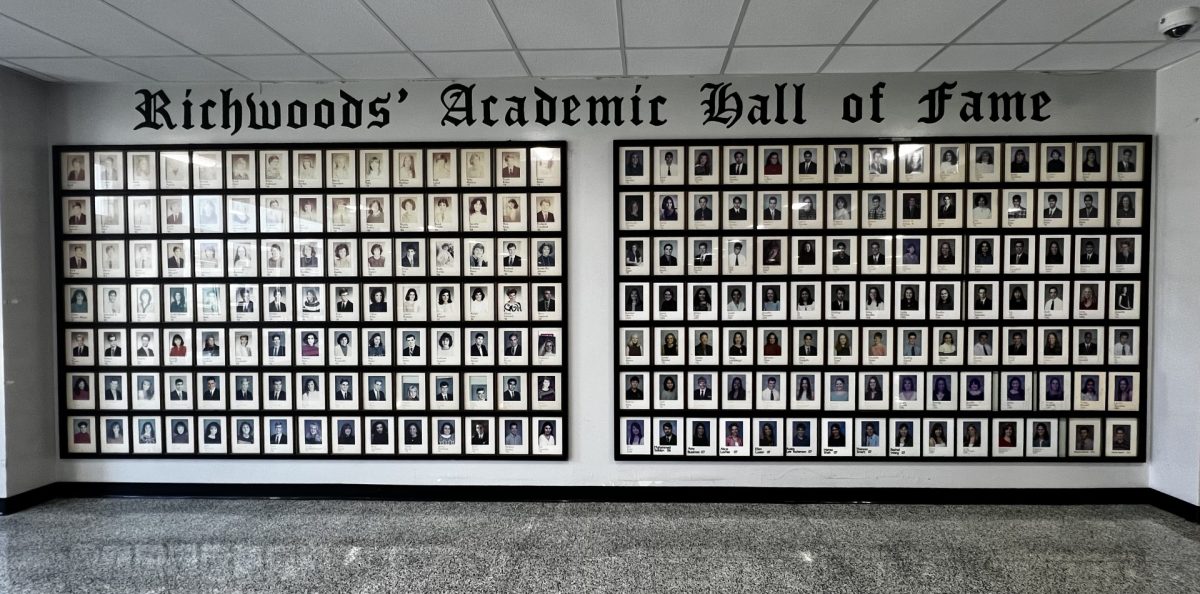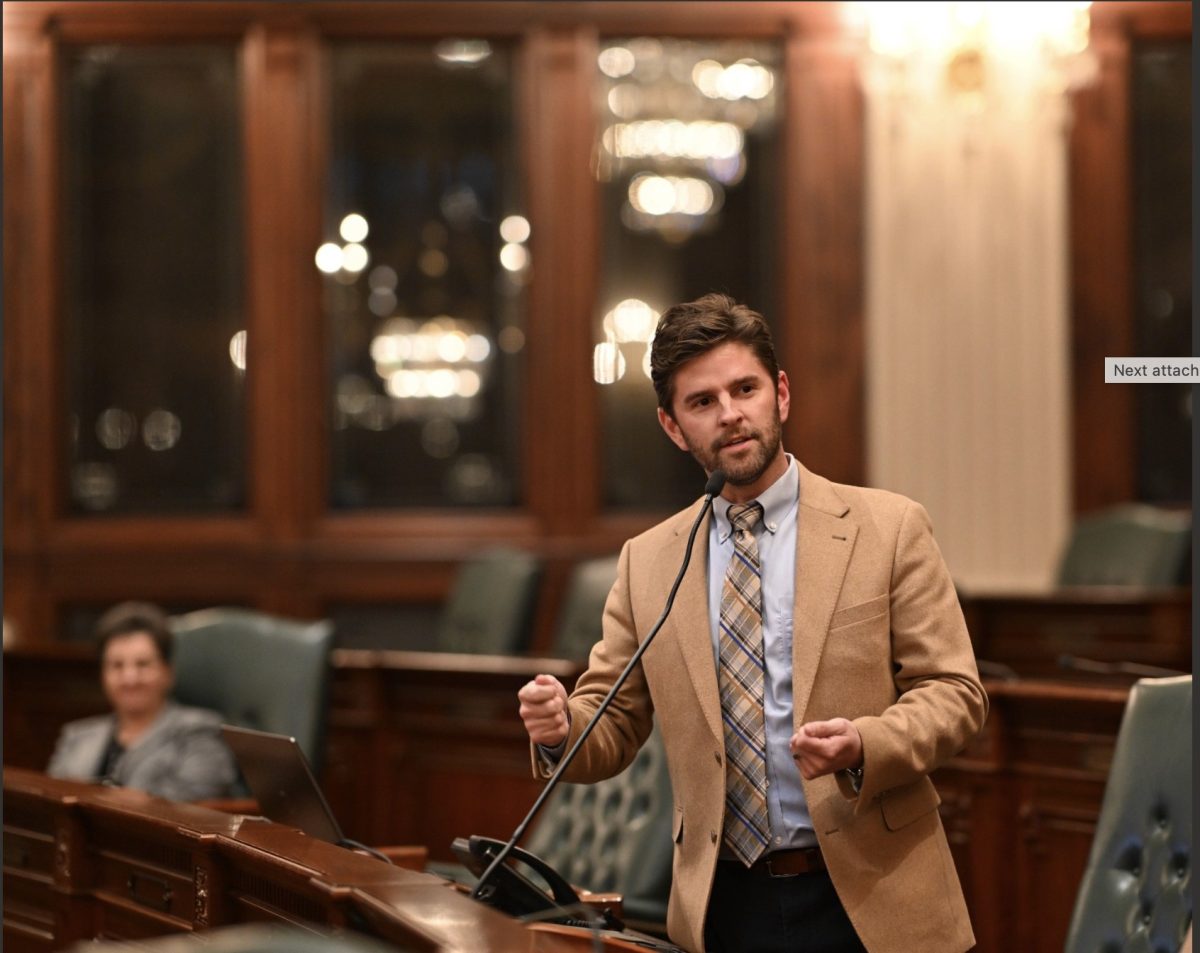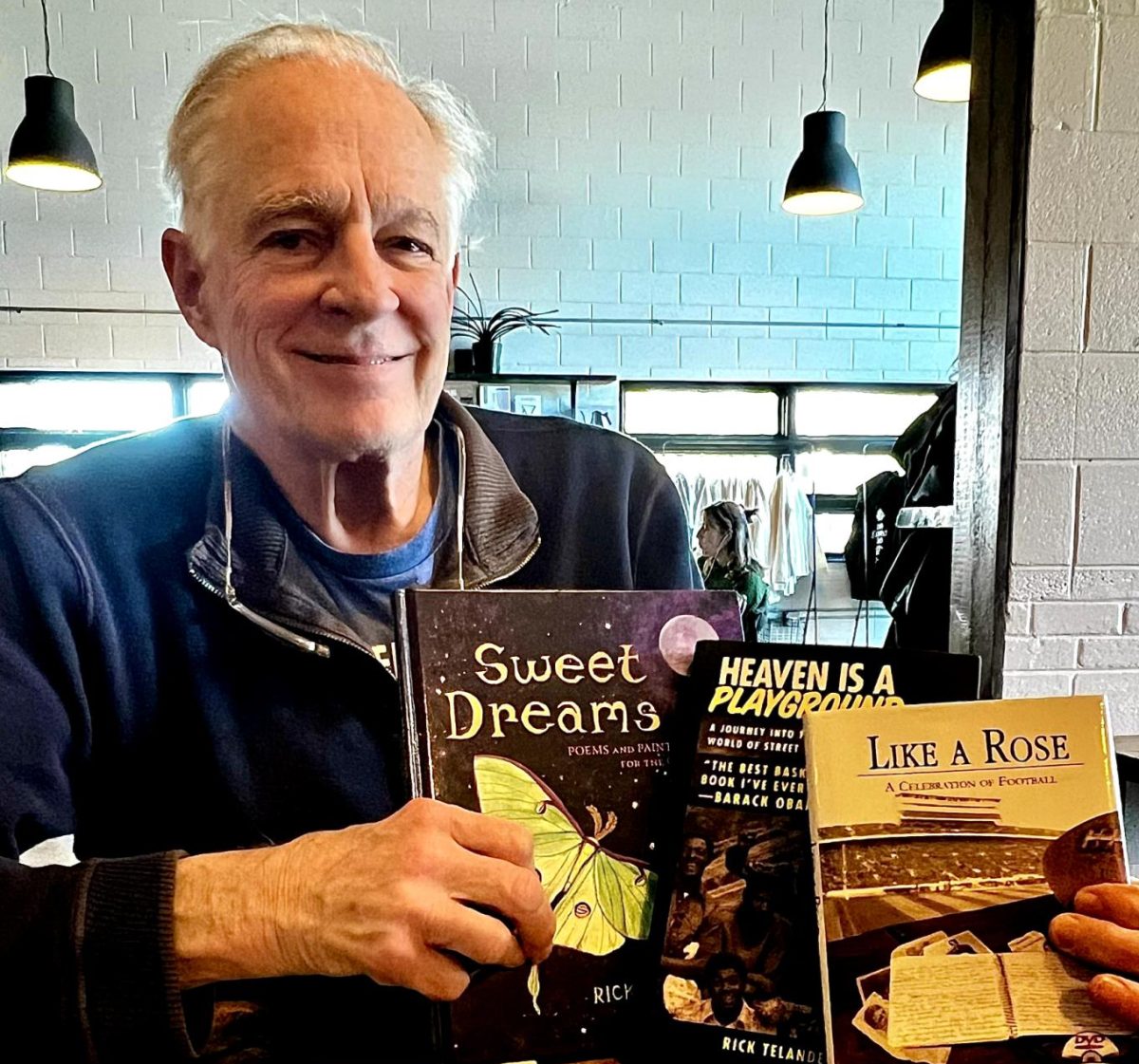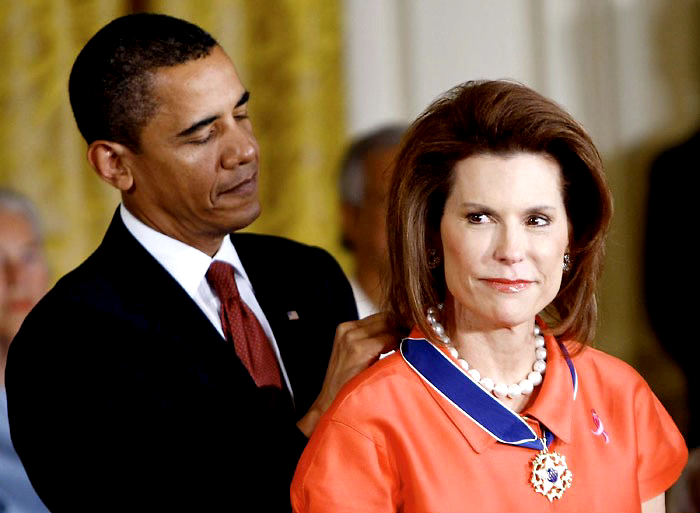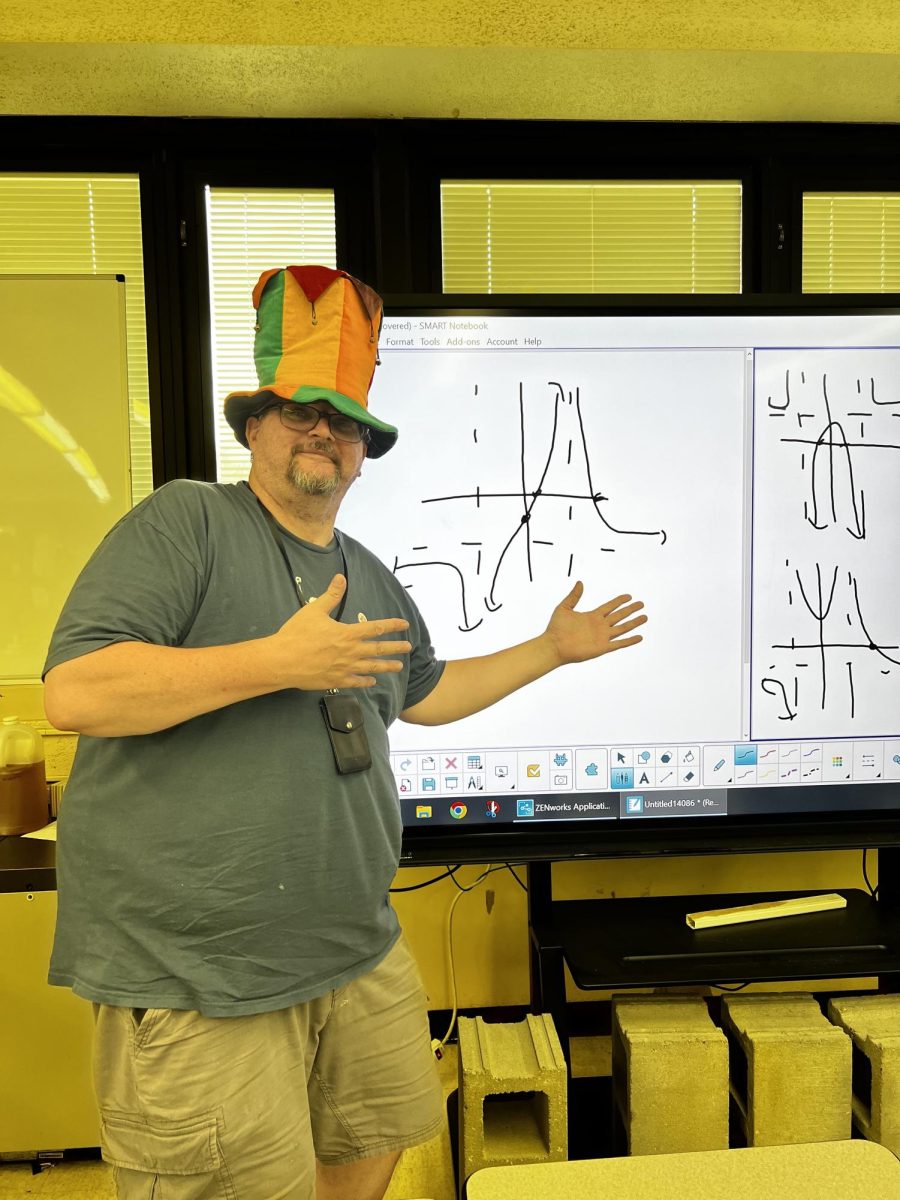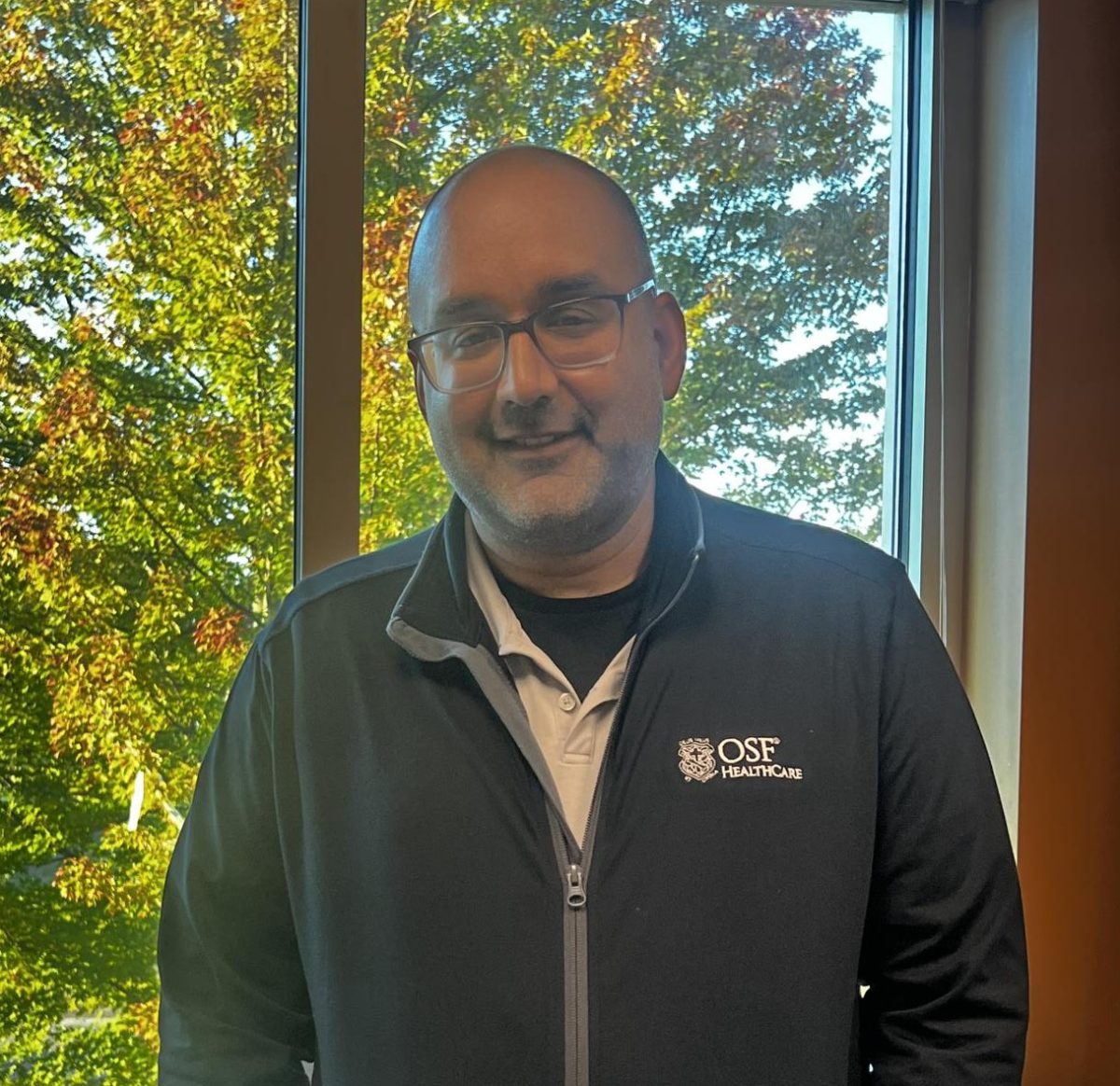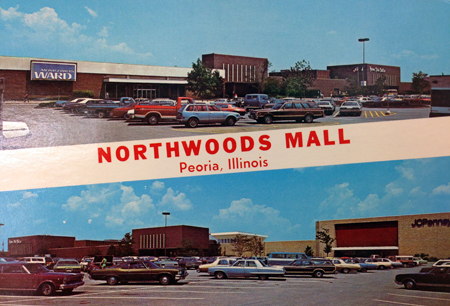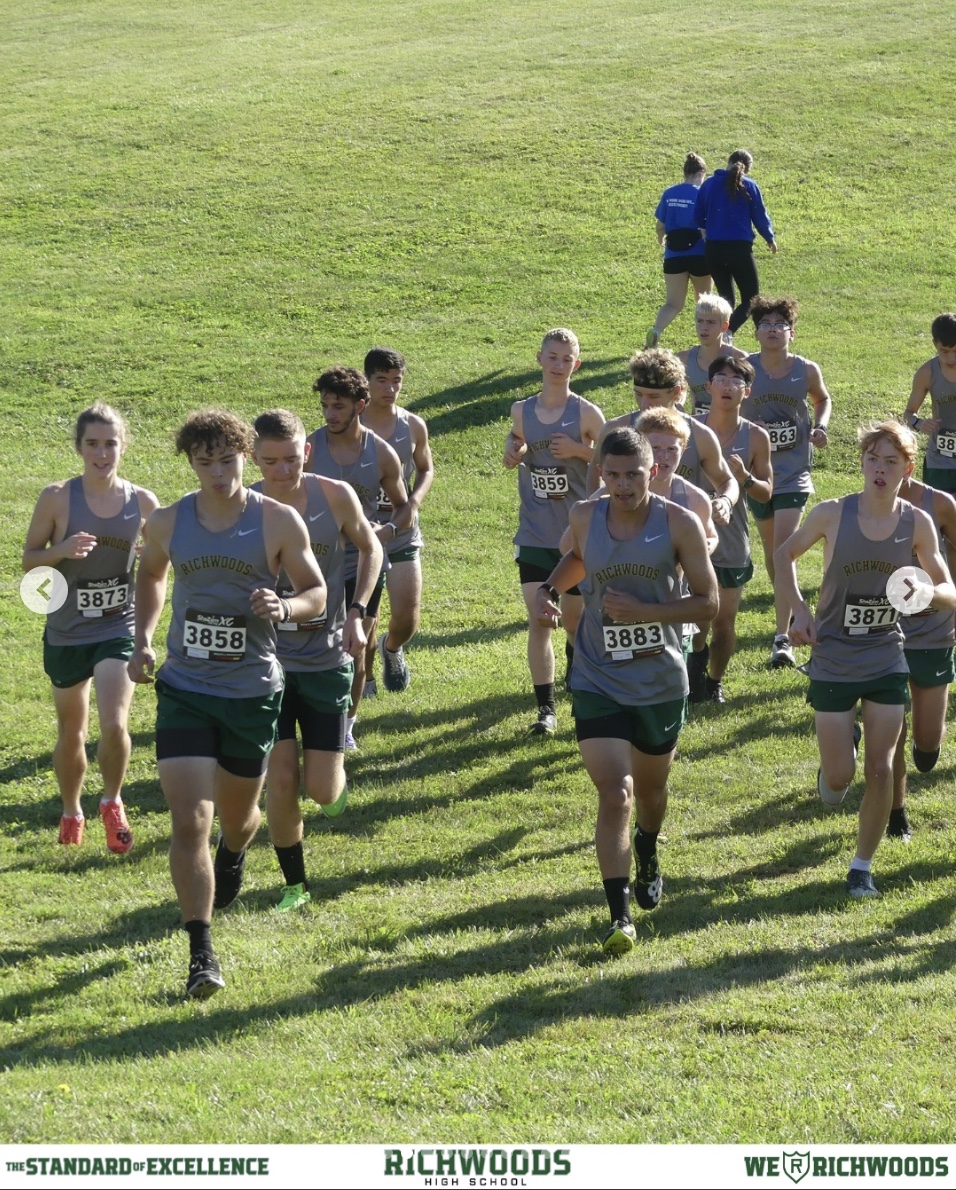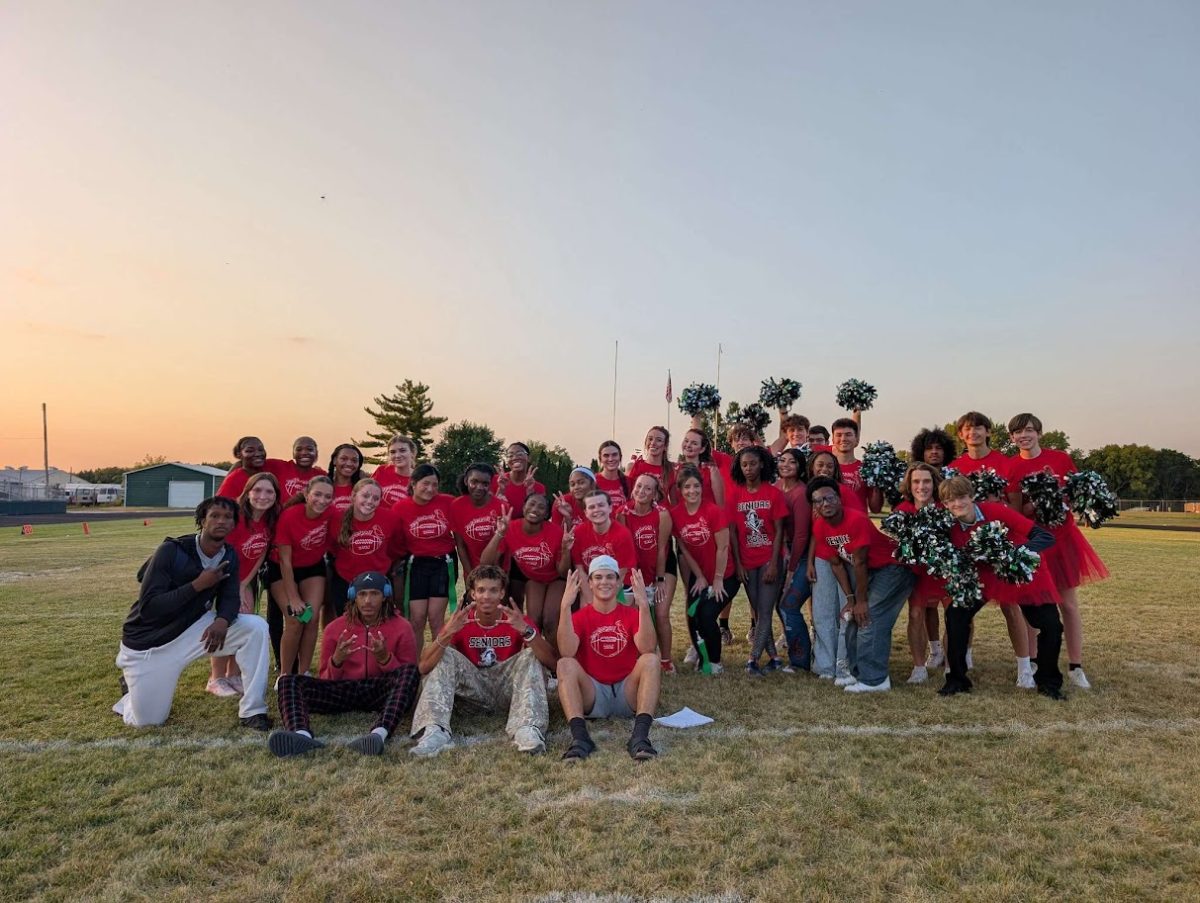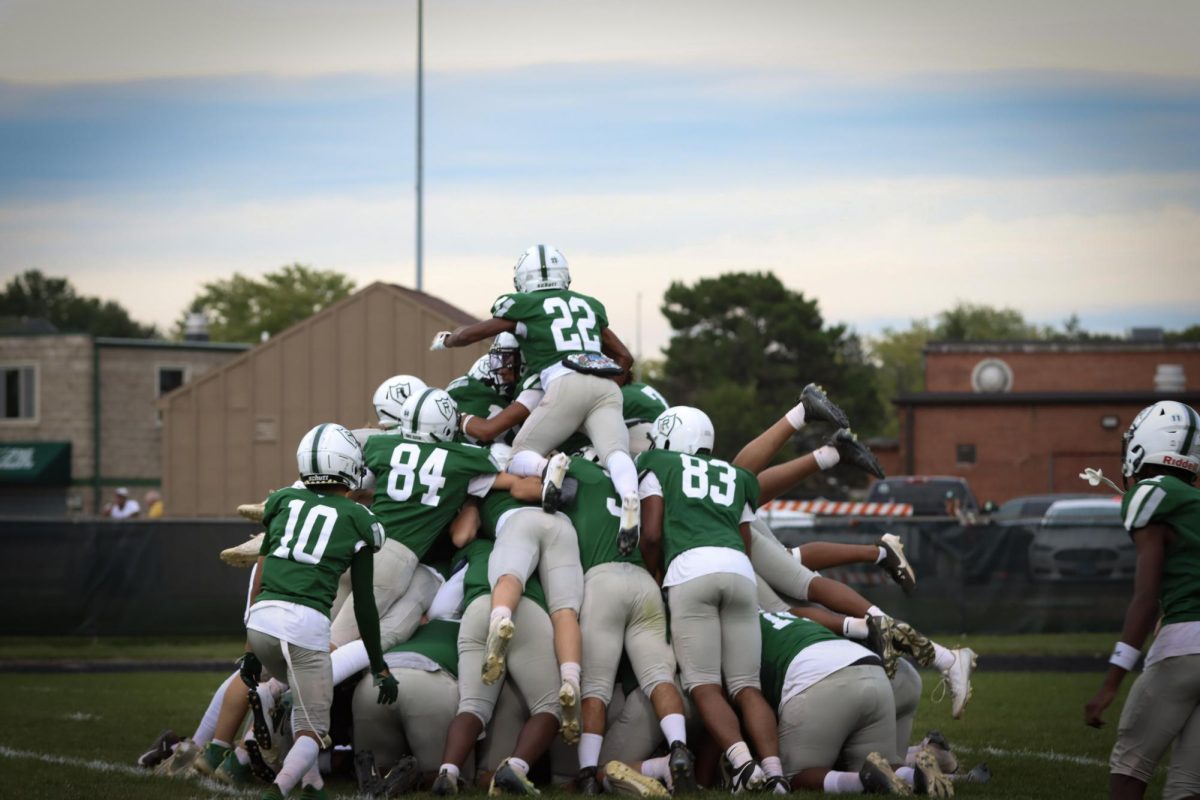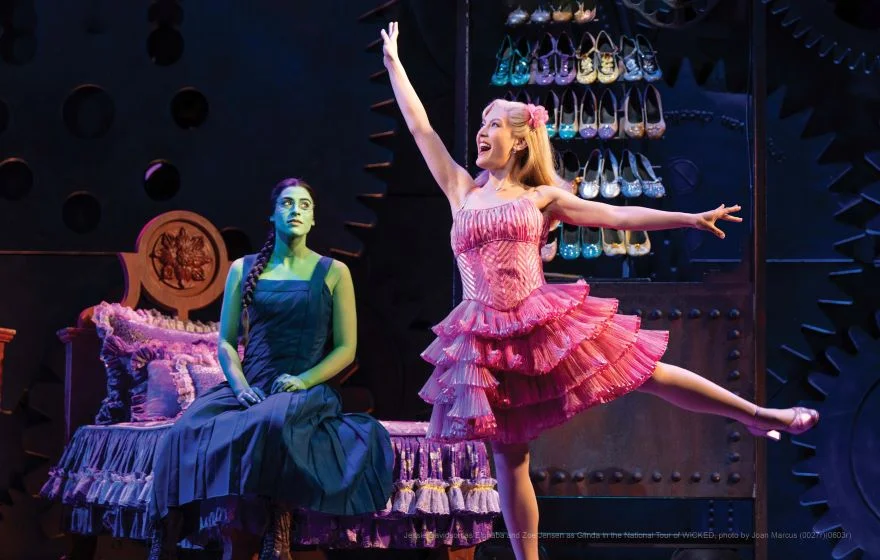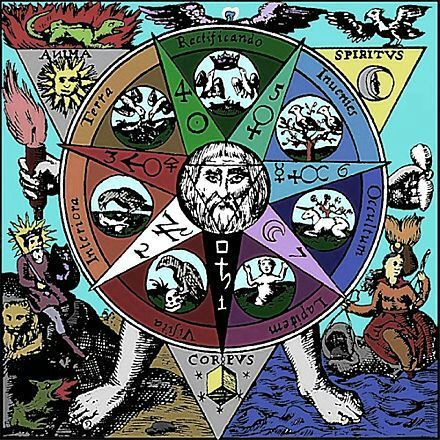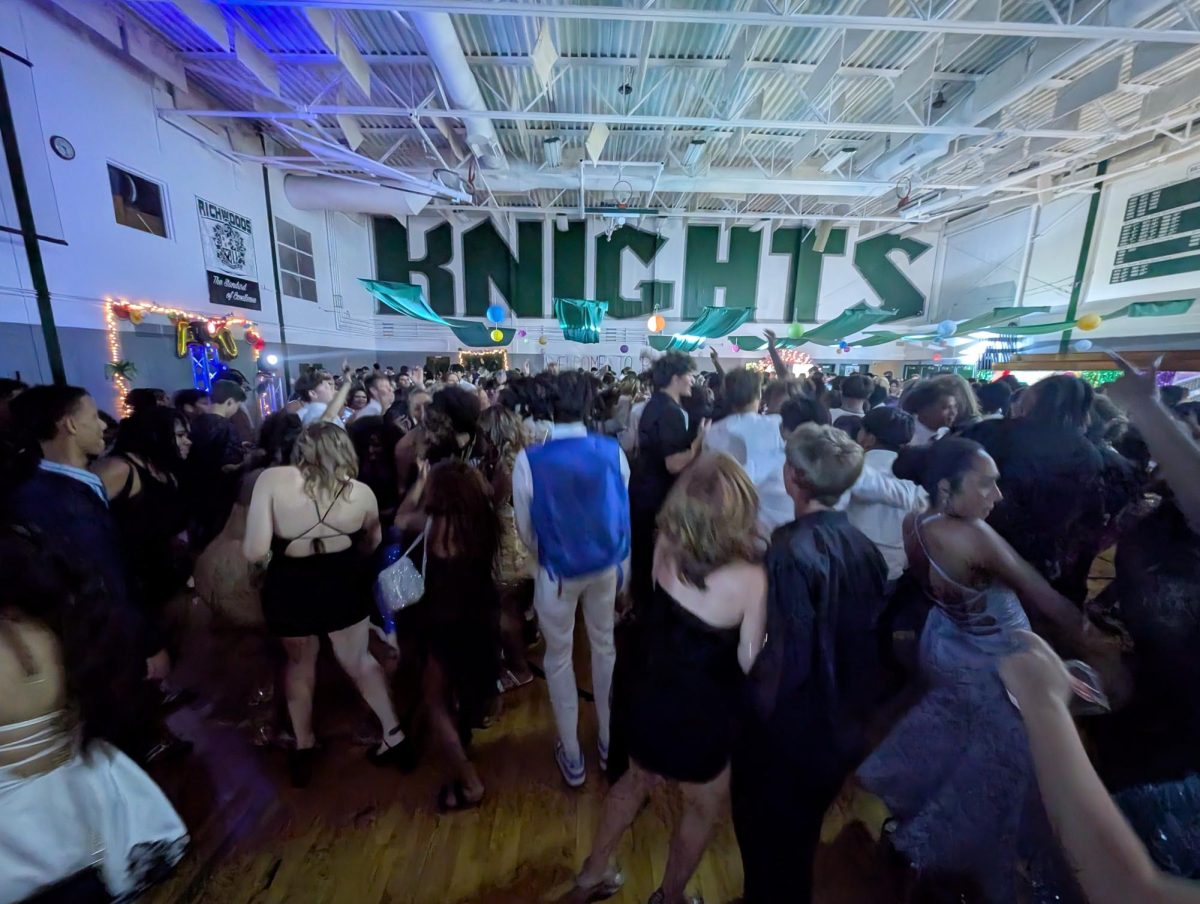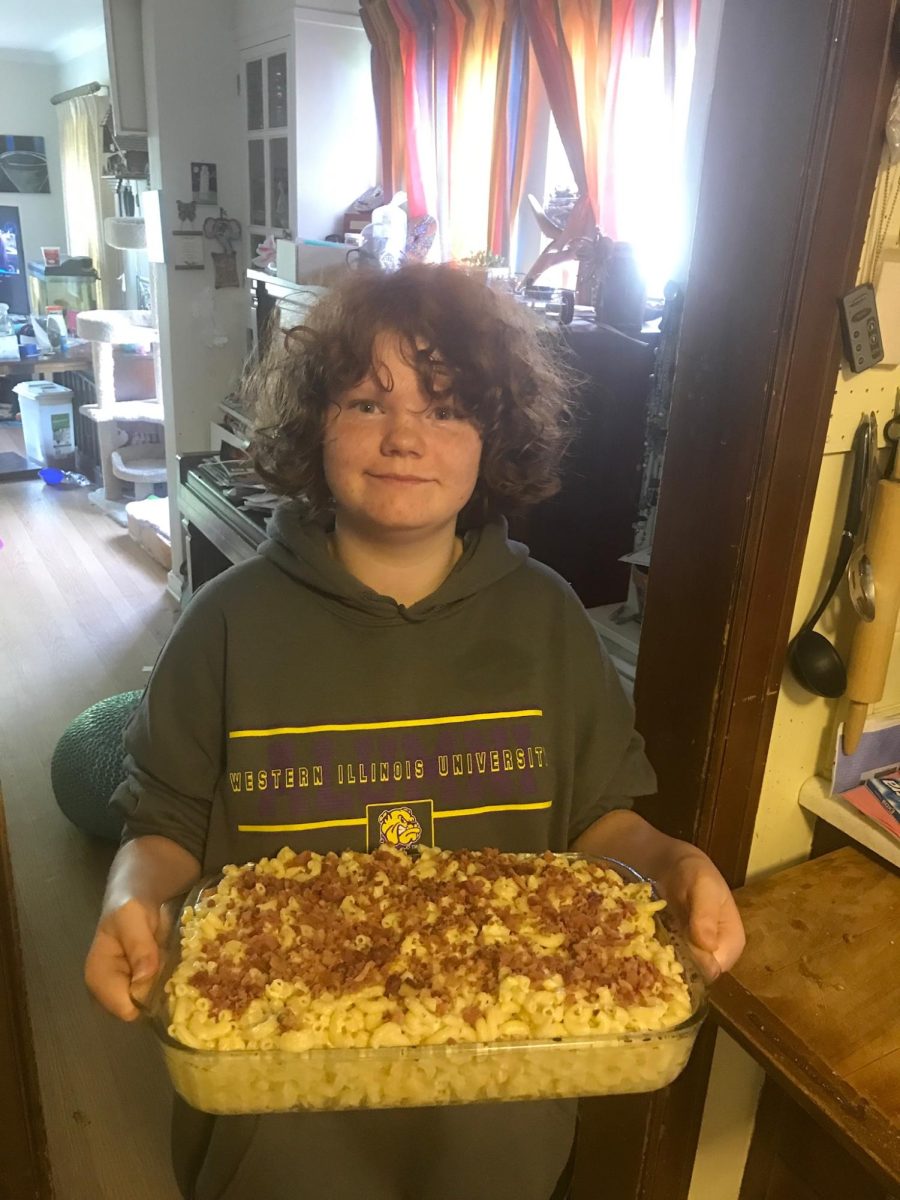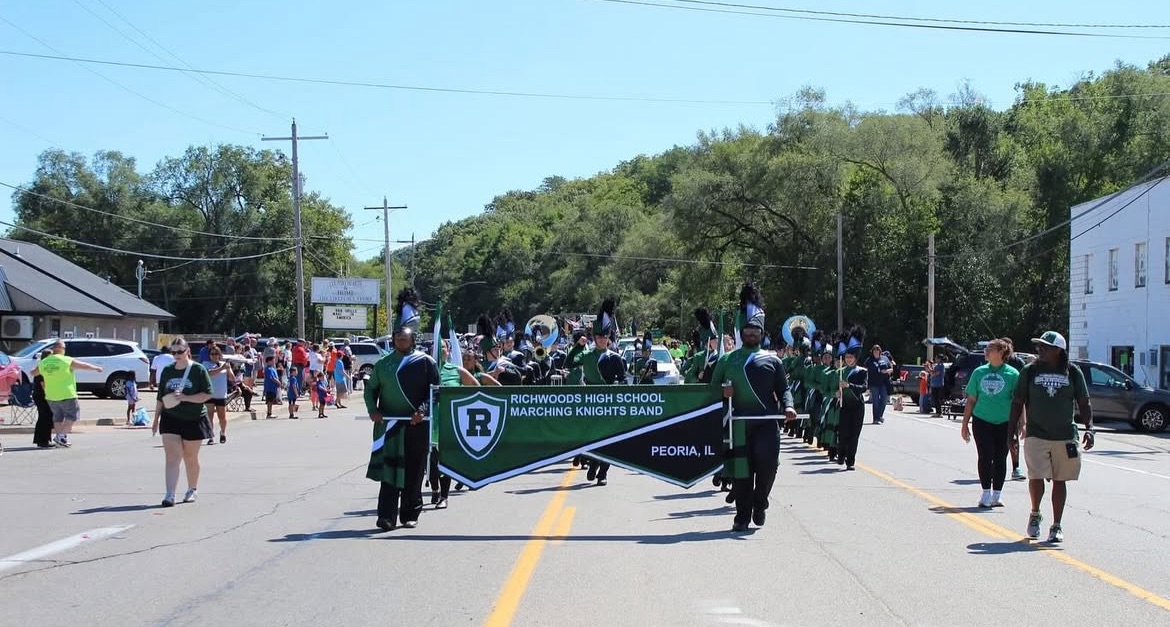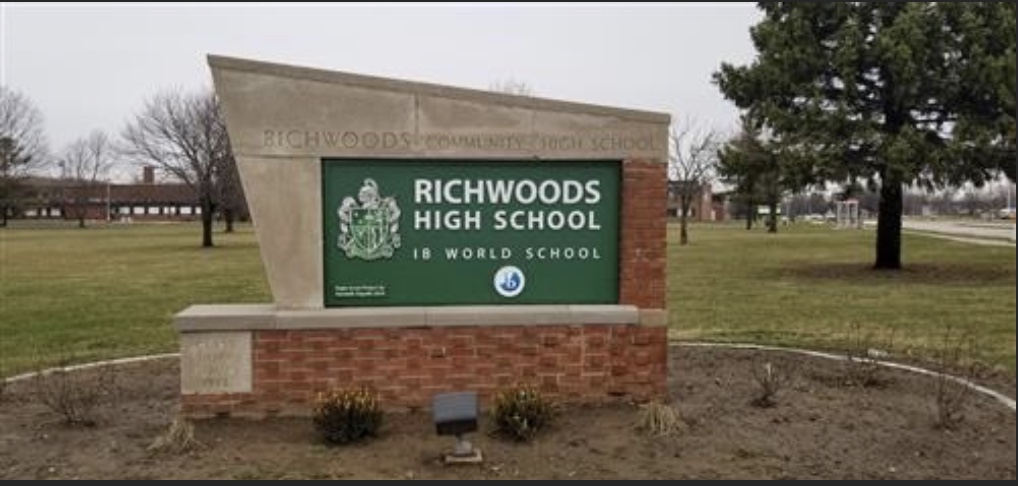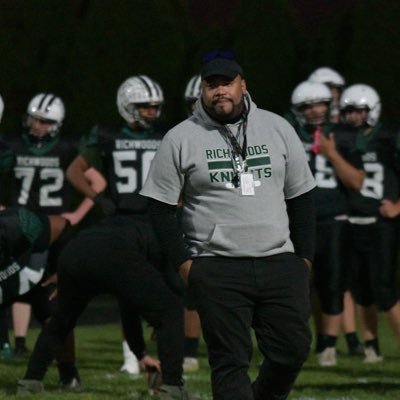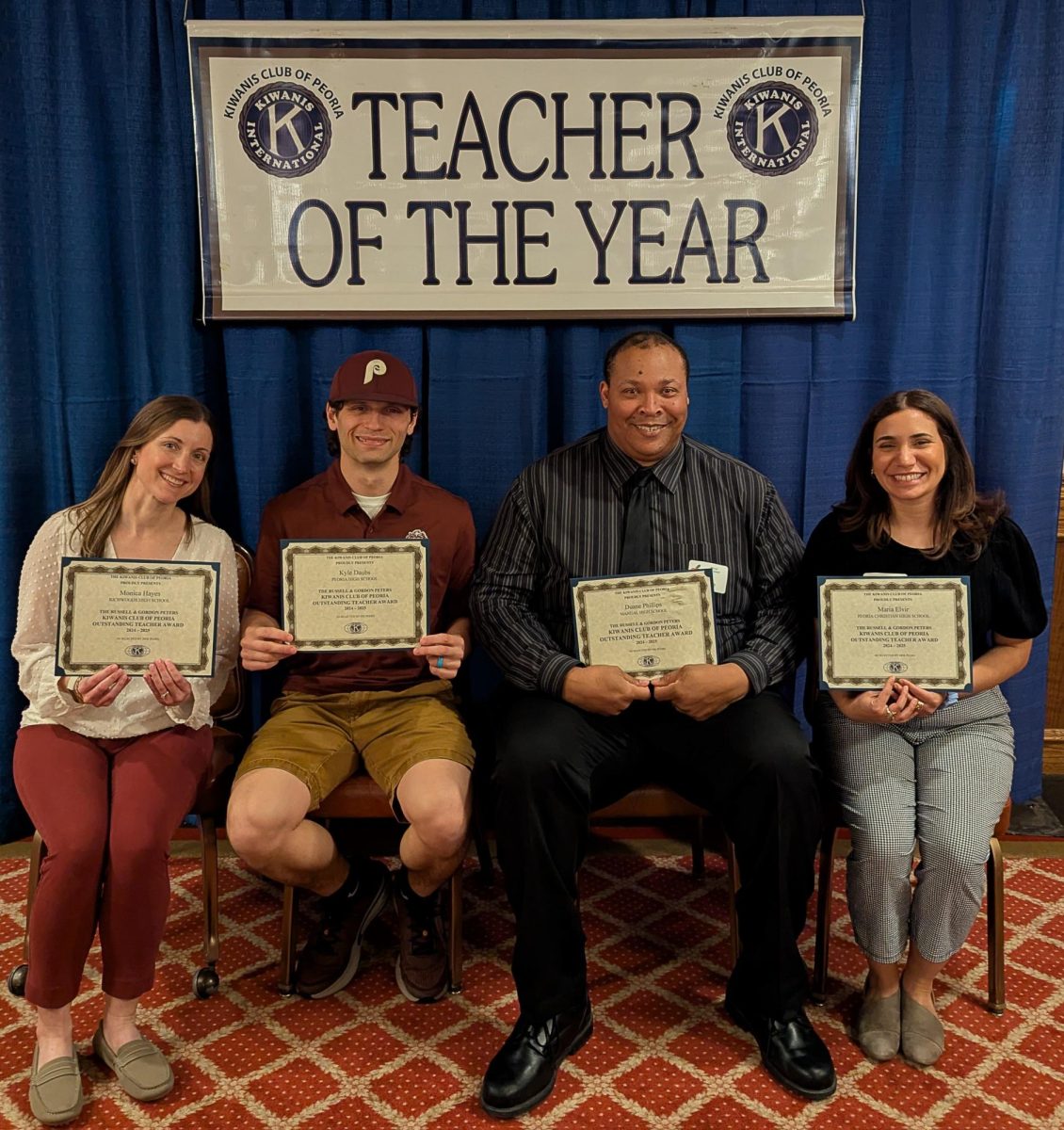I shall be telling this with a sigh
Somewhere ages and ages hence:
Two roads diverged in a wood, and I–
I took the one less traveled by,
And that has made all the difference.
– Robert Frost
It is interesting, I speculate, that a coffee shop should be next door to a firefighter department. I smile to myself when assuming that the firefighters at Highwood Fire Department must have a strong penchant for hot drinks, especially on a cold winter day. It was at one o’clock on a frigidly cold winter day that I am to meet our next Richwoods alumnus at Tala Coffee Roasters, a quaint coffee shop in Highwood, a North Shore suburb of Chicago. The weather proves perfect for a warm drink. As I enter Tala and walk up to the counter to order, the café is very full. People of all ages sit lingering on metal stools around long wooden tables, enjoying the warmth of the coffee shop. Tala’s furniture consists of wooden tables and metal chairs, except the two leather armchairs by the window. Everyone sips their drinks slowly, maybe looking for a valid excuse to stay longer in the warm and cozy café.
After receiving my drink, I sit on a metal chair at one of the long wooden tables. As my eyes wander to the table beside me, I notice a man holding a book, a pen, and a copy of the Chicago-Sun Times. After placing these items on the table, he walks to the counter to order a drink. I recognize him instantly and wait until he returns to the table to greet him. Holding a cup of coffee in one hand and shaking my hand in the other, he is no other than Mr. Rick Telander, a renowned sportswriter and columnist at the Chicago-Sun Times. In description, Mr. Telander is a man with a demeanor and gait reminiscent that of a former athlete but speaks like a person who is right on with words, a reminder of Hemingway in his diction. He has large, broad hands of a football player but a deep voice that articulates wisdom accumulated over the years.
As a Peoria native, Mr. Telander played football for Richwoods High School. Under the direction of Coach Tom Peeler, Mr. Telander played quarterback during his senior year. Eventually, Mr. Telander’s playing led him to play football for Northwestern University. He was later drafted by the Kansas City Chiefs but was cut during the training camp. When one road closed, Mr. Telander took another: he began pursuing a writing career. Having once written articles for the Peoria Journal Star for $50 an article, he soon found his niche in sports writing. Since then, he has written articles for several newspapers and magazines including Sports Illustrated as a Special Contributor for 8 years. Afterwards, he became a Senior Writer and joined Sports Illustrated full time from 1981 to 1995. During those years, when an opportunity arose for Mr. Telander to go to New York to write about college basketball players who came “home to their asphalt roots,” he seized the opportunity not only to make lifelong friends, but to write his first book Heaven is a Playground, which, according to Sports Illustrated, is considered one of the top 15 sports books of all time. Mr. Telander would later write eight more books, including a children’s poetry book, Sweet Dreams: Poems and Painting for the Child Abed. In 1995, Mr. Telander transitioned to the Chicago Sun-Times to become their sports columnist, the position that he still holds. Mr. Telander’s work has been widely recognized and has received many accolades. A few of his accomplishments include being nominated three times by the Chicago Sun-Times for the Pulitzer Prize, being awarded Illinois Sportswriter of the Years eight times, having eight stories included in the Best American Sports Writing anthology, and being inducted into the National Sports Media Hall of Fame in 2021.
From the time he was a boy growing up in Peoria, Mr. Telander had always loved football. “It was the All-American game, for boys, for guys. I loved growing up in Peoria and watching the Bears when they were on TV. I envied all these football players, these big guys, just seemed liked a cool way to be a guy.” At around 9 or 10 years old, Mr. Telander started playing football with the neighborhood kids in the yards. He continued to play flag football at Kellar Primary School and later played football at Richwoods. When Mr. Telander entered Richwoods in 1963, he remembers that high school was a disorientating time, the time when everyone started to transition into being an adult. “As a teenager, you feel alone, that’s normal, and you start looking for a group, or something.” For Mr. Telander, he found his place by playing football. “Sports really saved me. And the biggest thing that ever happened to me at Richwoods is when Tom Peeler, the football coach came up to me during my junior year and said that he wanted me to be the quarterback on his team.” Though Mr. Telander didn’t exactly have a “cannon for an arm” typical of a quarterback, Coach Peeler saw something in Mr. Telander and trusted him to lead the team. “Coach Peeler, he was a calm coach. He was the best teacher I had at Richwoods.” Becoming a quarterback changed Mr. Telander’s life. His ability led him to be recruited by Northwestern University and got a full-ride scholarship to play football there.
Other than football, Mr. Telander played basketball and ran track and was coached again by Coach Peeler. During his senior year, Mr. Telander was also the vice president of the Senior class and discovered that he always loved to read. “I remember falling in love with words and writing, falling in love with reading.” In the interview, as Mr. Telander reflects on his love for words, he wishes that someone would have told his younger self: “Hey Rick, you know something? I think you could be, and I think you want to be a writer. I see a little something in you.” In fact, up until an interviewer happened to tell Mr. Telander that he could be a writer, he had never thought of a writing career before. Though Mr. Telander decided to major in English Literature at Northwestern, his football career deterred him from pursuing writing further. However, as it happened, his football career was cut short, allowing Mr. Telander to travel on a different path than he had intended.
As destiny had it, Mr. Telander started to ponder about a career as a writer when his athletic career ended. “The main thing (about writing) was that I had to make a living out of it. I thought I couldn’t make a living out of it and that is why I started out as a freelance writer. You’ve gotta make a living.” After briefly writing some articles for the Peoria Journal Star, Mr. Telander asked himself, “I figured what do I have that maybe nobody else can do? Everybody has something they write about that is unique. For me, I figured out maybe I write about sports for Sports Illustrated. That was the key.” Little did he know that his journey with Sports Illustrated would lead him down the path to a summer in Brooklyn, lifelong friends, and his first book.
In the summer of 1974, at the age of 24, Mr. Telander spent his time in Brooklyn, New York, specifically on a basketball court in Foster Park known as “The Hole.” What he experienced and observed became the subject of his book, Heaven is a Playground, which has gone through the fifth edition. Decades after the book was published, Mr. Telander still stayed in touch with the people he got to know that summer, including James “Fly” Williams, a talented ball player, who, despite his gifted abilities on the court, could not stay out of trouble in the street. When Fly was sent to prison for selling drugs, Mr. Telander made a trip to visit him and wrote about his meeting with Fly. Clearly, the summer of 1974 is more than just a summer of playing ball and writing a book, as he fostered lifelong friendships with those talented street basketball players.
Mr. Telander’s path as a writer not only gifted him with lifelong friendships in sports but gave him the opportunity to explore music, art, and literature. Had he become a professional football player, he may not have the time to discover his other talents. In addition to the sports world, Mr. Telander developed friendships with people who shared his interest in music, art, and literature. During the interview, our common interest in music leads to the discussion of the Del-Crustaceans, a rock band which Mr. Telander helped form from his time at Northwestern University. The band has been making music and entertaining the audience for over 50 years. Unfortunately, after playing so long together, they have also experienced some losses as some band members have passed away. Mr. Telander recounts how one time he came down to play in Peoria with his band, and one band member, who was battling cancer, could not make it to the place where they were supposed to perform because he had to go to a hospice. Mr. Telander went to the hospice to see his friend and played music for him. “We played two songs, and he sat up on the couch and sang and it was really, really powerful … We used music to say goodbye.” When his friend said to him during his visit that “from what I hear, time doesn’t exist up there,” Mr. Telander promptly told his friend “I’ll see you right away then, I’ll be there.”
Mr. Telander’s lifelong friendships with people who come into his life illustrate how deeply he values his relationships. When asked to define success, Mr. Telander replies, “You know, that’s a tough question. For me, in the long run, it’s how you treat people along the way, I think. You don’t want to leave people in a miserable way. Leaving the world in a tiny bit better place. To me, that’s success.” By his own definition of success, Mr. Telander is a very successful man indeed. His caring about people and down-to-earth personality has led him to create valuable and sincere relationships with people, no matter how old they are or what background they may come from. Shortly before our interview ends, I ask Mr. Telander to sign his books I brought with me, Like a Rose and Heaven is a Playground. He also kindly gives me another book Sweet Dreams, a children’s poetry book he wrote. His inscription to Heaven is a Playground is particularly special to me as he signs, “Your Pal, Rick.” Thinking about this interview, I cannot help but feel honored to be Mr. Telander’s “pal,” knowing just how valuable his friendship means. As he himself says, once he befriends someone, he is their friend forever.
Our interview concludes around three o’clock. I have been talking to Mr. Telander for around two hours, even though the time feels much shorter. After I have finished all my interview questions, I feel I have plenty more questions to ask. From music to books, I have a most enjoyable time talking about authors and poets such as Hemingway, Kafka, Dickinson, and Frost with Mr. Telander. He particularly likes Robert Frost and recites his favorite poems “The Road Not Taken” and “Stopping by Woods on a Snowy Evening.” Finally, when Mr. Telander finishes his coffee, we shake hands, and I watch him leave Tala. I still sit at the long wooden table, thinking about the interview and Frost’s famous poem that Mr. Telander has just recited, “The Road Not Taken.” When two roads diverged in his life, Mr. Telander took “the one less traveled by,” by becoming a sportswriter. While one can detect a sense of regretfulness in Frost’s speaker as he pictures himself talking about his decision with “a sigh,” I am sure Mr. Telander, with all his accomplishments and meaningful relationships that he has fostered over the years, will be telling about his decision to be a writer with a smile.
Source:
https://www.ricktelander.com/about


